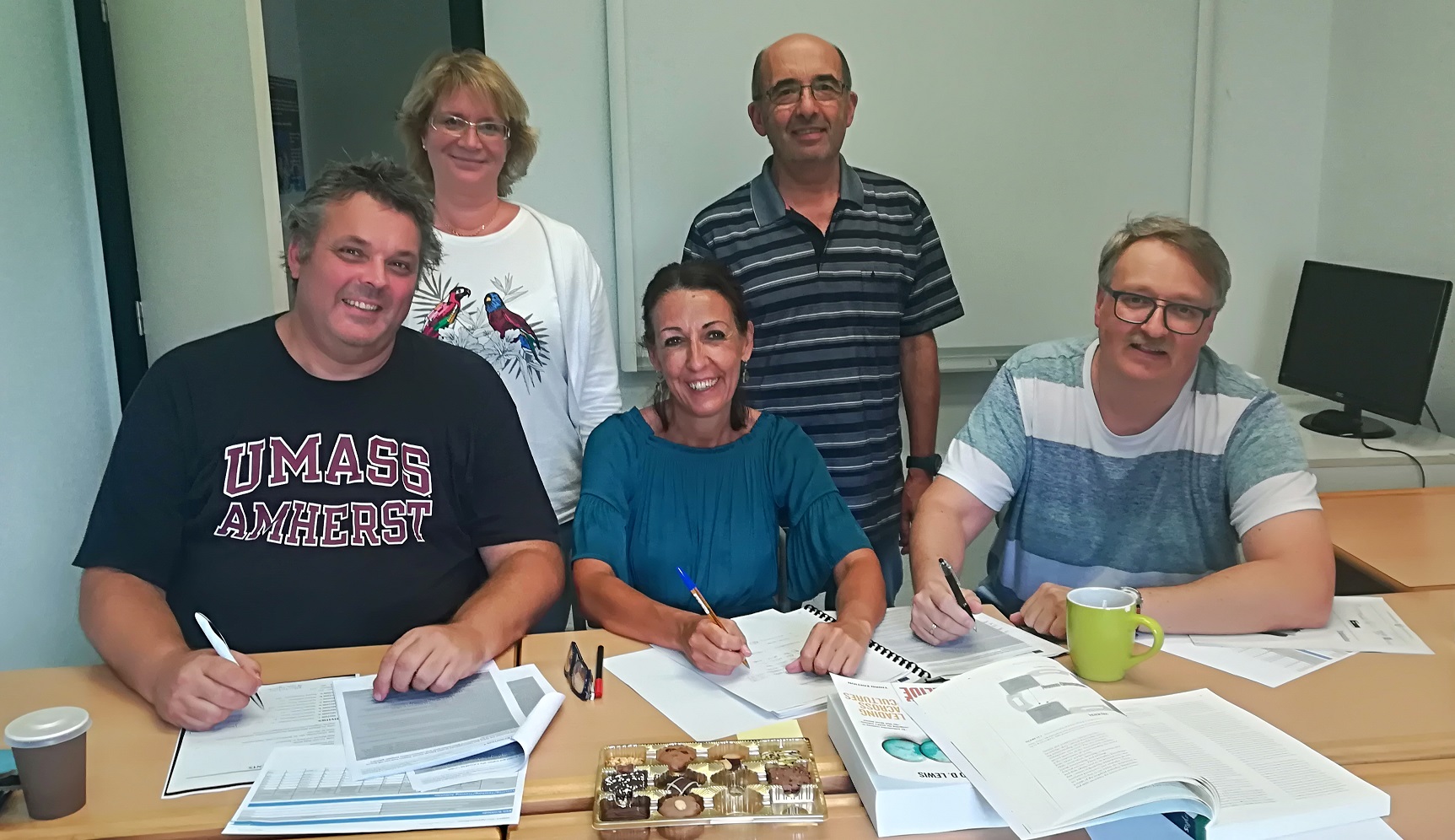Bilbao
Picture Bilbao

Written Report Bilbao
First Meeting
We discussed the following items:
We should learn how to define culture creatively and to understand the process of intercultural competence development. The tasks carried out should build awareness of how cultures form, the importance of perspective-switching and the nature of culture change.
The project should focus on activities that help people understand how deeply and pervasively cultural differences influence us. Students should explore differences such as attitudes towards power and hierarchy in a variety of situations with this set of activities, from daily interactions to business ones, from current events to Websites. This set of activities should focus on helping our students understand their own values and those of others, as a means of building self- awareness of others. To navigate identity, we should define ourselves, culturally speaking. This set of activities includes introductions, icebreakers and exercises that take people on a learning journey to understand, articulate and negotiate their cultural identities. To manage cultural transitions, we should set up frameworks and exercises to help individuals moving across cultures to plan for and manage their transitions effectively. It should update one of the most established areas of our work with fresh thinking and ideas on how to best prepare people for cultural transitions. Knowledge of cultural differences needs to be translated into action, and this set of innovative exercises helps people learn and practice how to communicate successfully in various aims to facilitate team cohesiveness and trust in intercultural situations. The activities in this project should be developed with the goal of Building European teams. The exercises should include introductions, simulations, and a game whose aim is to facilitate team- cohesiveness and trust. Beyond understanding differences, a key component of cultural competence is being able to resolve differences. The focus will be on building creative problem solving- skills required to navigate the complexities of various cultural situations. Exercises have to be created that serve to introduce people to one another, culturally speaking,
We should learn how to define culture creatively and to understand the process of intercultural competence development. The tasks carried out should build awareness of how cultures form, the importance of perspective-switching and the nature of culture change.
The project should focus on activities that help people understand how deeply and pervasively cultural differences influence us. Students should explore differences such as attitudes towards power and hierarchy in a variety of situations with this set of activities, from daily interactions to business ones, from current events to Websites. This set of activities should focus on helping our students understand their own values and those of others, as a means of building self- awareness of others. To navigate identity, we should define ourselves, culturally speaking. This set of activities includes introductions, icebreakers and exercises that take people on a learning journey to understand, articulate and negotiate their cultural identities. To manage cultural transitions, we should set up frameworks and exercises to help individuals moving across cultures to plan for and manage their transitions effectively. It should update one of the most established areas of our work with fresh thinking and ideas on how to best prepare people for cultural transitions. Knowledge of cultural differences needs to be translated into action, and this set of innovative exercises helps people learn and practice how to communicate successfully in various aims to facilitate team cohesiveness and trust in intercultural situations. The activities in this project should be developed with the goal of Building European teams. The exercises should include introductions, simulations, and a game whose aim is to facilitate team- cohesiveness and trust. Beyond understanding differences, a key component of cultural competence is being able to resolve differences. The focus will be on building creative problem solving- skills required to navigate the complexities of various cultural situations. Exercises have to be created that serve to introduce people to one another, culturally speaking,
presenting typical to particular communities´ ways of introduction. Short exercises are to be done that introduce key topics and serve as intellectual warm- ups. Activities have to be undertaken to build cultural knowledge, attitudes and skills. Educational games will be established that have a goal, rules, and often a competitive element. Case studies should be set up to analyze specific situations that can be analyzed in order to provide intercultural learning.
An overview of the framework will include a brief summary of the tool, appropriate audiences (students and teachers), a level of challenge to participants, ways in which the tool can be used during learning experiences and typical learnings that emerge through the use of the tool or framework.
An overview of the framework will include a brief summary of the tool, appropriate audiences (students and teachers), a level of challenge to participants, ways in which the tool can be used during learning experiences and typical learnings that emerge through the use of the tool or framework.